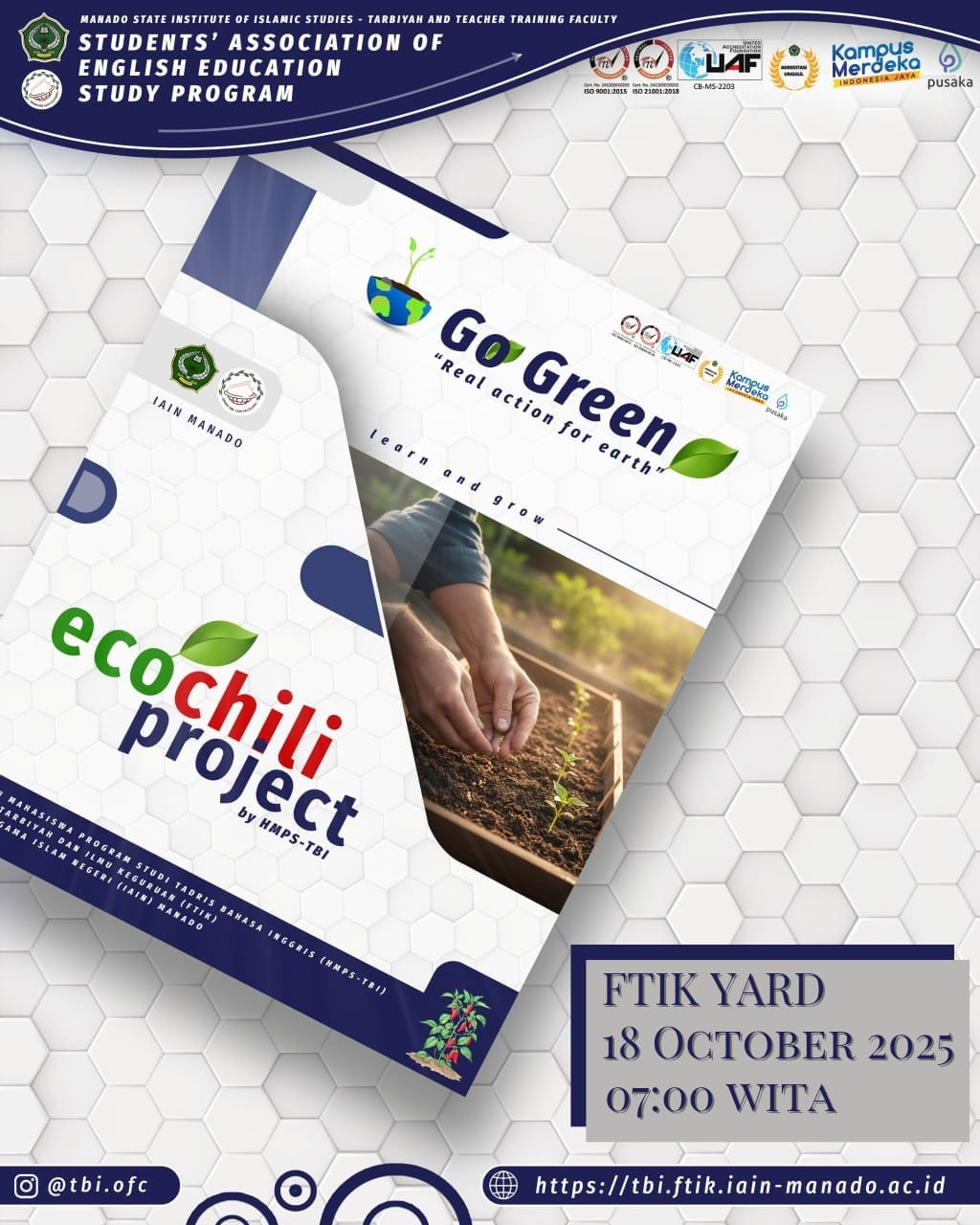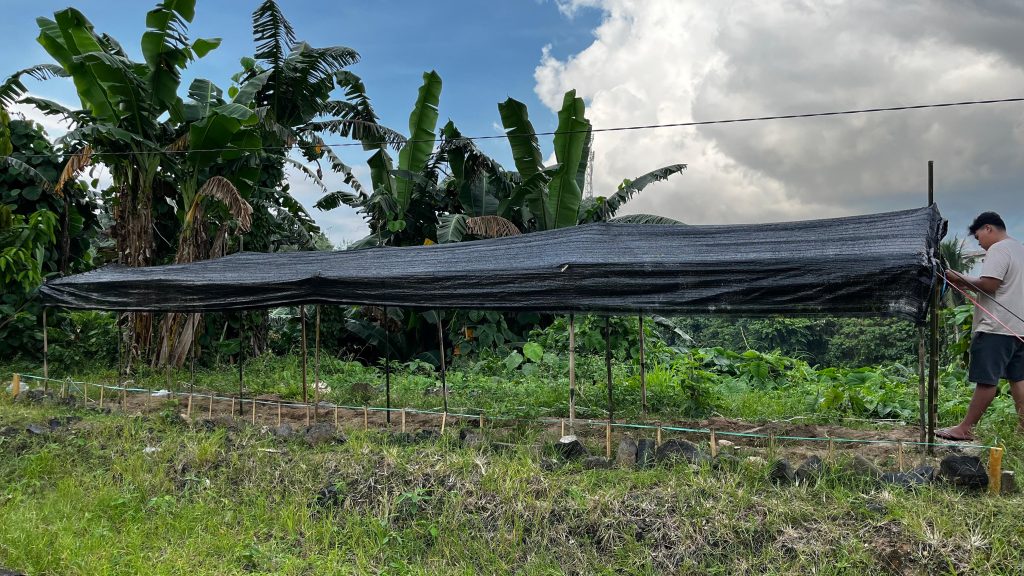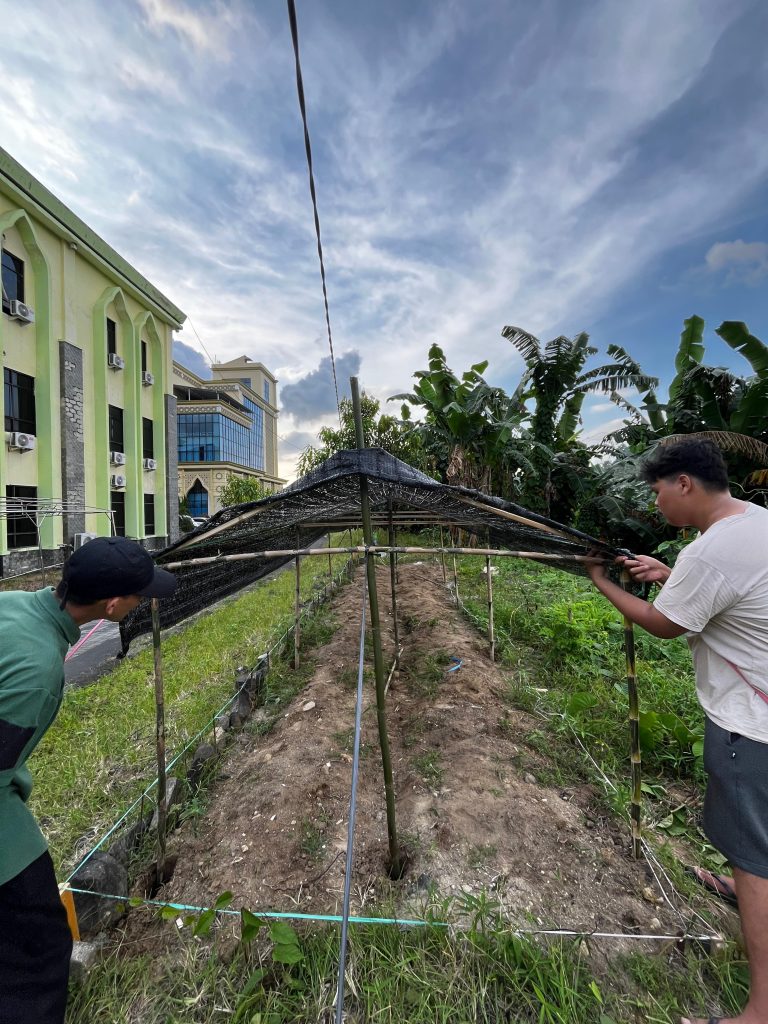
The English Education Students’ Association (Himpunan Mahasiswa Tadris Bahasa Inggris/HMPSTBI) of the Faculty of Tarbiyah and Teacher Training (FTIK) at IAIN Manado has launched an environmental and entrepreneurial initiative called the Eco Chili Project on October 18, 2025. The project, which is part of the student organization’s annual work program, aims to promote sustainability, environmental awareness, and economic creativity among students. The activity is designed to be a continuous program that will be maintained and expanded in the coming semesters.


Through the Eco Chili Project, HMPSTBI members cultivate chili plants in eco-friendly pots made from recycled materials around the faculty area. This initiative reflects the students’ commitment to contributing to a cleaner and greener campus while integrating environmental consciousness into academic and organizational activities. The project also seeks to instill entrepreneurial values by allowing students to manage, harvest, and distribute the produce collectively.
The Dean of the Faculty of Tarbiyah and Teacher Training, along with the Head of the English Education Study Program, expressed strong appreciation for the students’ initiative. Both academic leaders emphasized that this program aligns with the Ministry of Religious Affairs’ (Kementerian Agama) environmental sustainability agenda and supports the realization of a “Green Campus” culture across Islamic higher education institutions.
“The Eco Chili Project is an excellent example of how students can take practical steps to support the Ministry’s environmental programs. It not only enhances students’ ecological awareness but also teaches responsibility, creativity, and teamwork,” the Dean said. Similarly, the Head of the English Education Study Program praised HMPSTBI for integrating social and environmental values into their organizational agenda, encouraging other student organizations to initiate similar eco-based projects.


The Eco Chili Project has received positive responses from the academic community and will continue to develop as a long-term sustainability movement within the English Education Department. HMPSTBI plans to expand the project by involving more students and departments, with the goal of transforming the FTIK environment into a living laboratory for ecological awareness and sustainable education.
